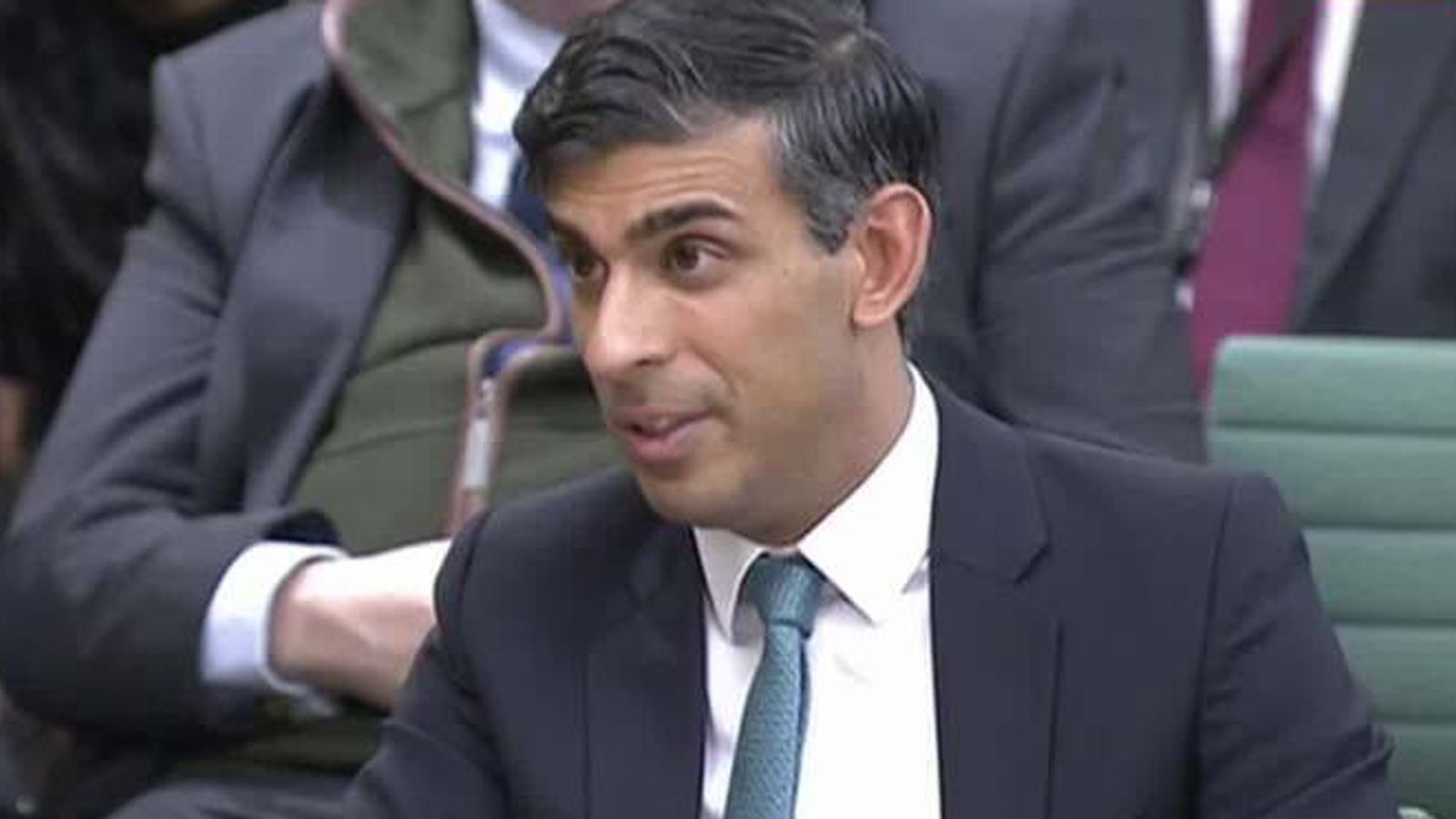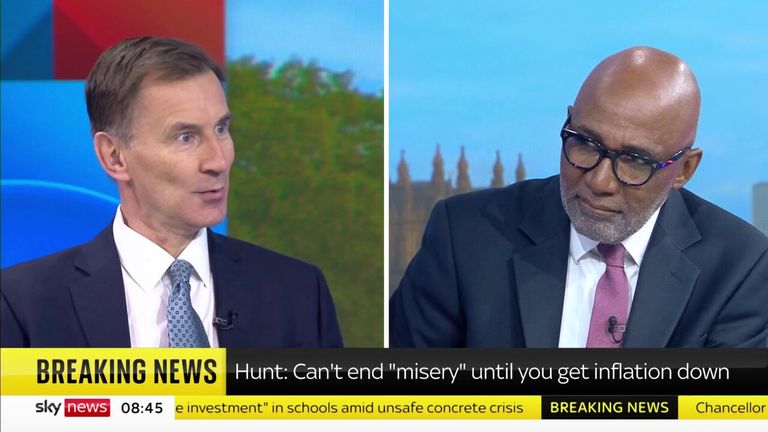Government borrowing and debt grew in November, official figures showed, casting doubt on the likelihood of one of the prime minister’s key pledges.
In the financial year, from April up to last month, borrowing grew to £116.4bn.
That’s the second highest since records began in 1993 and an increase of £24.4bn on the same period last year, according to Office for National Statistics (ONS) data.
Overall, the public sector net debt was £2,671.4bn at the end of November.
This meant debt as a proportion of GDP, a measure of everything produced in a country and economic growth, grew to around 97.5% – up 1.8 percentage points on a year earlier.
It’s a level not seen since the early 1960s, the ONS said.
Debt as a proportion of GDP had hit the 100% mark in May of this year.
The public sector borrowed the fourth-highest amount in any November since records began, £14.3bn, a decrease of £0.9bn on the same month in 2022.
PM accused of causing ‘confusion’
It comes after the Prime Minister Rishi Sunak was criticised by the UK’s statistics watchdog for claiming to have reduced public debt when that was not the case.
The UK Statistics Authority, said the prime minister’s statement that “debt is falling” may have caused “confusion” and “undermined trust in the government’s use of statistics”.
The cost of borrowing grew to the highest November amount since publication of this record began in 1997.
State interest payments rose to £7.7bn over the year as inflation increased the cost of borrowing.
One of Mr Sunak’s five promises is to reduce government debt, when the state spends more money than it takes from taxes.
Read more
Government debt tipped to rise to 140% of GDP
National debt ‘could hit 300% of GDP by 2070s’
Responding to the data, chief secretary to the Treasury Laura Trott said the government was “right to spend billions protecting people” during the pandemic and following Russia’s invasion of Ukraine.
“But we cannot leave our children and grandchildren to pick up the tab,” she added.
She said the government was “taking difficult decisions” to control borrowing and improve productivity, while keeping inflation down.

